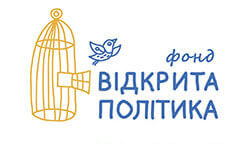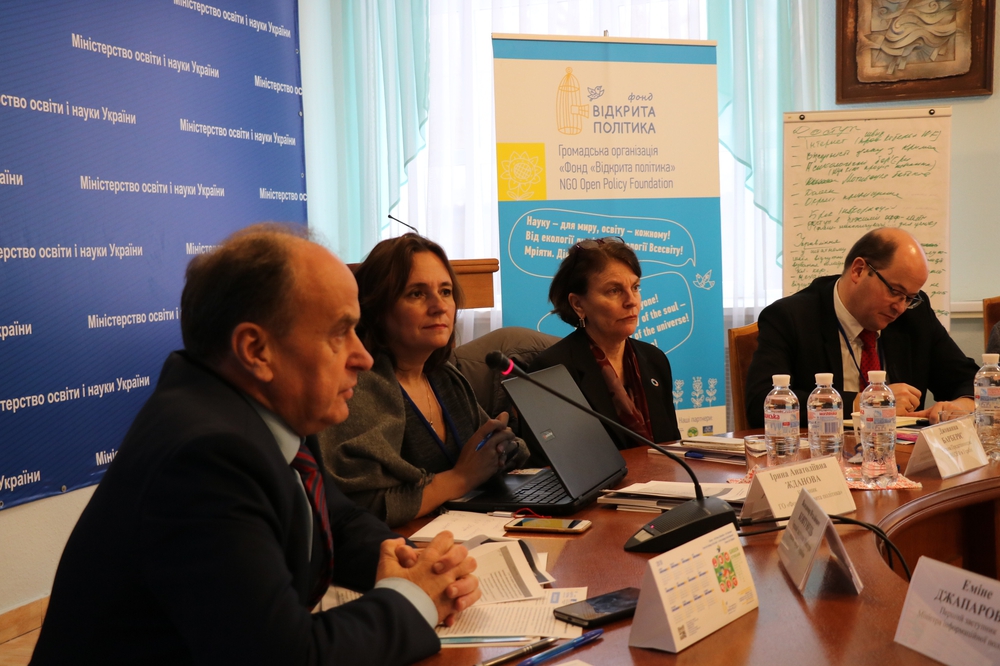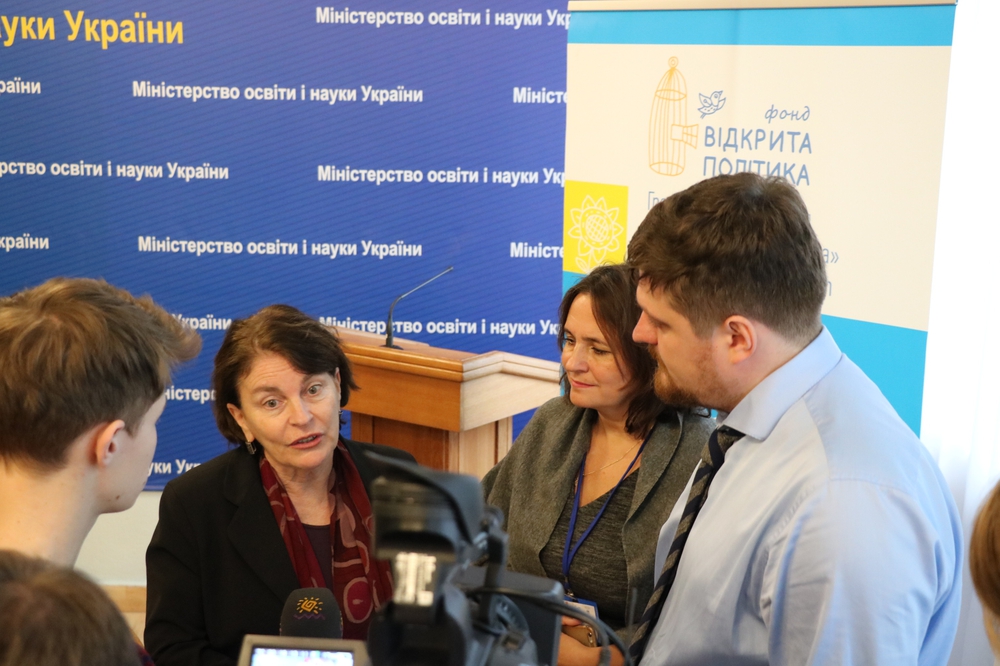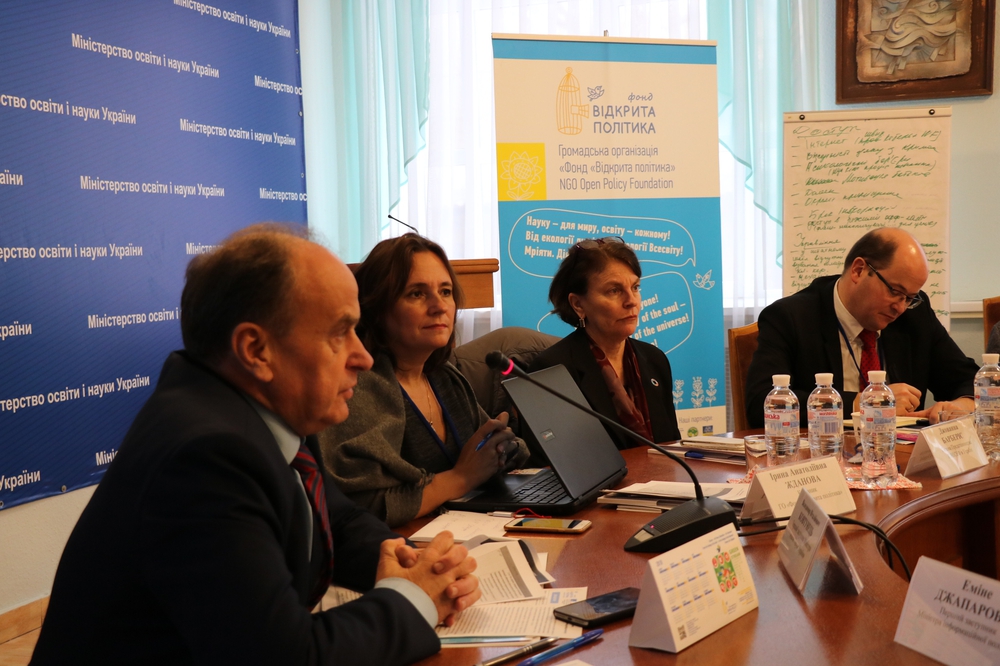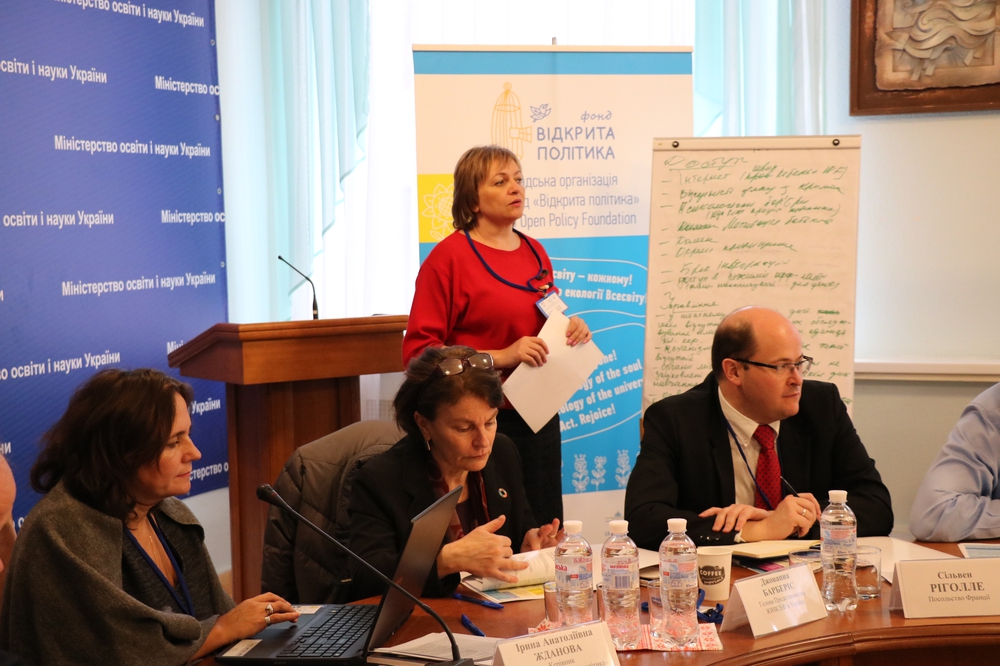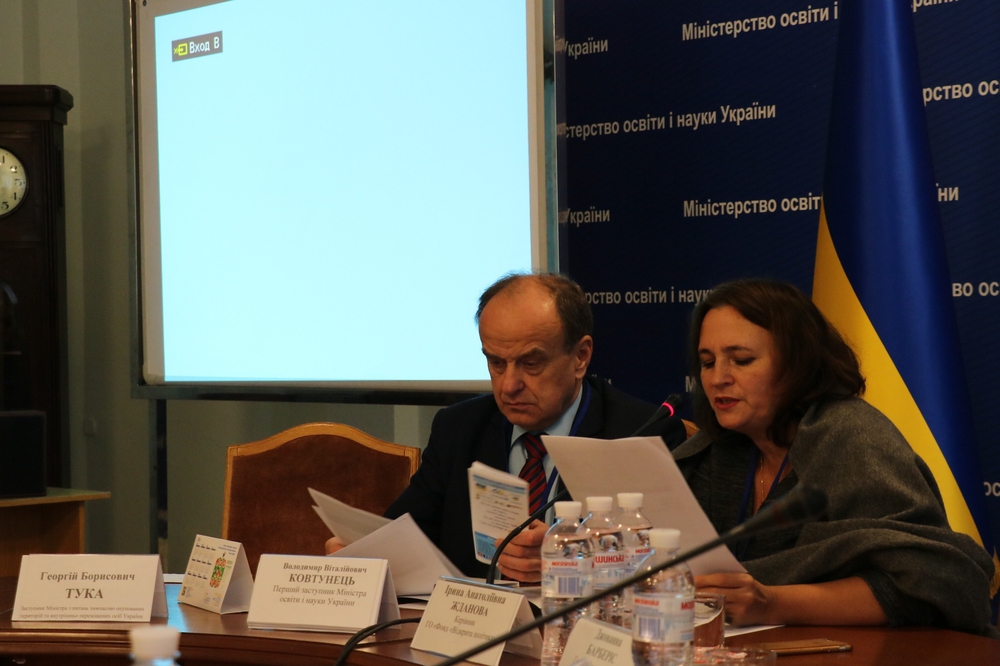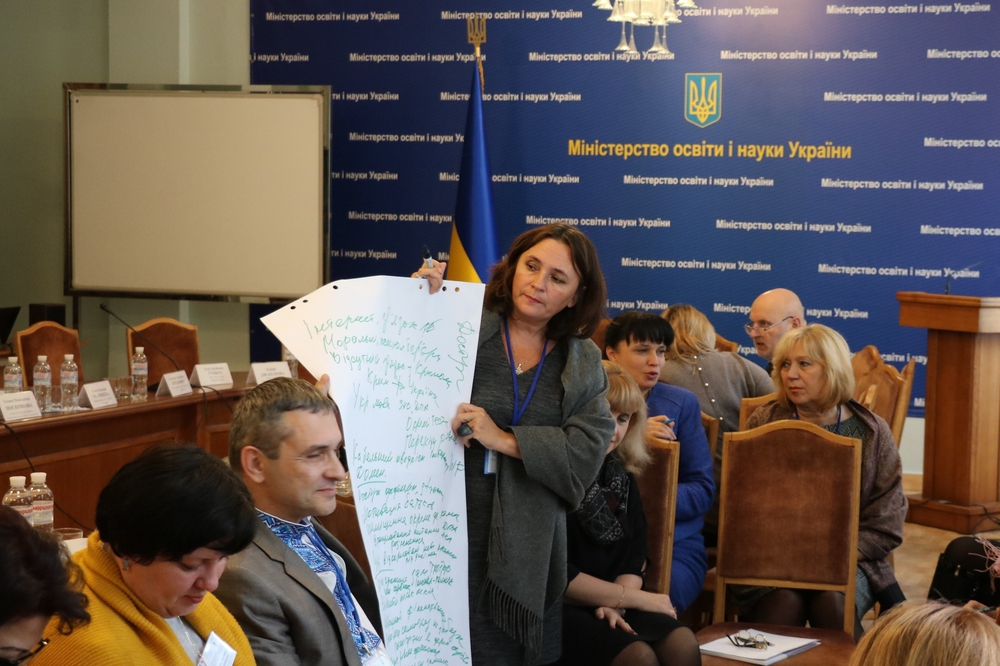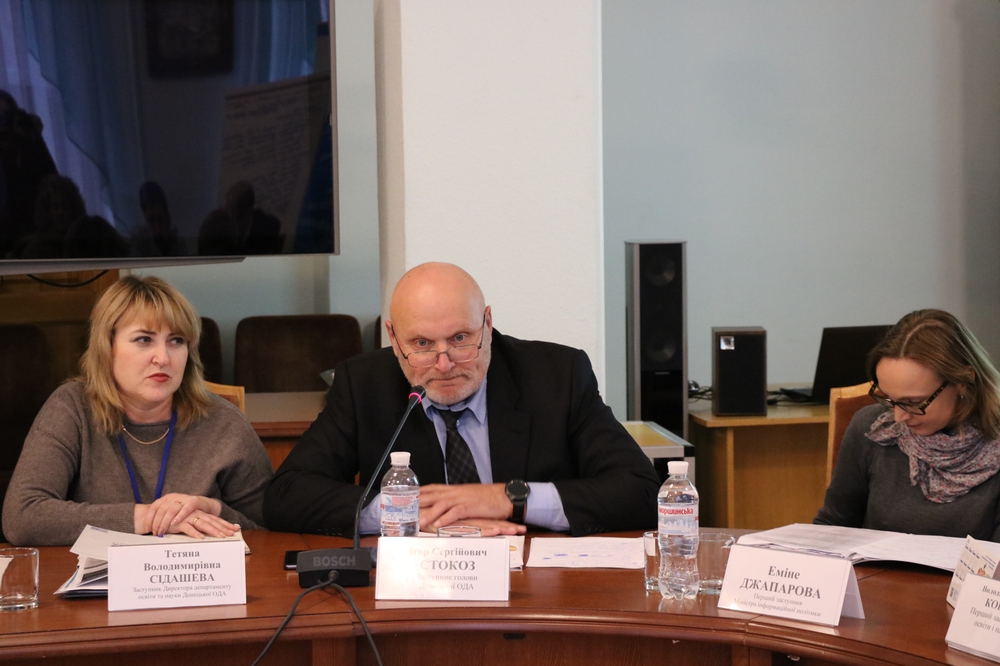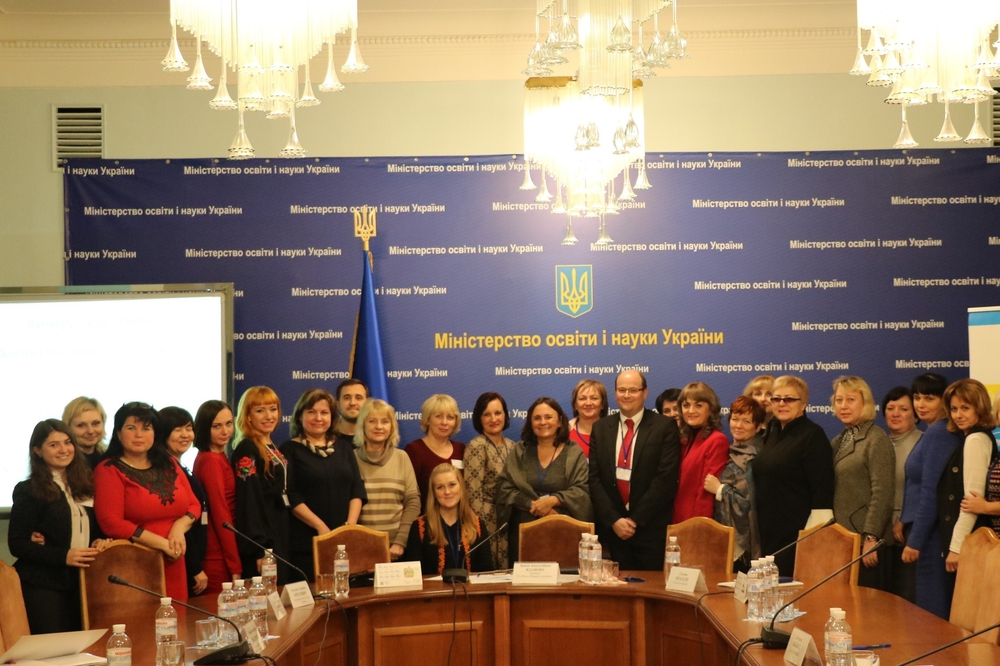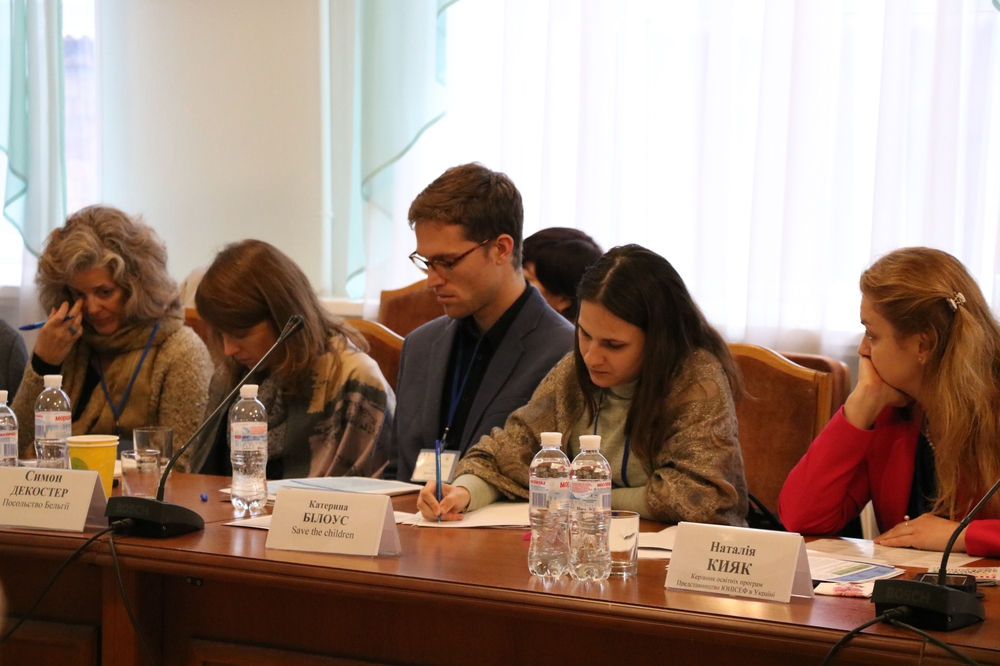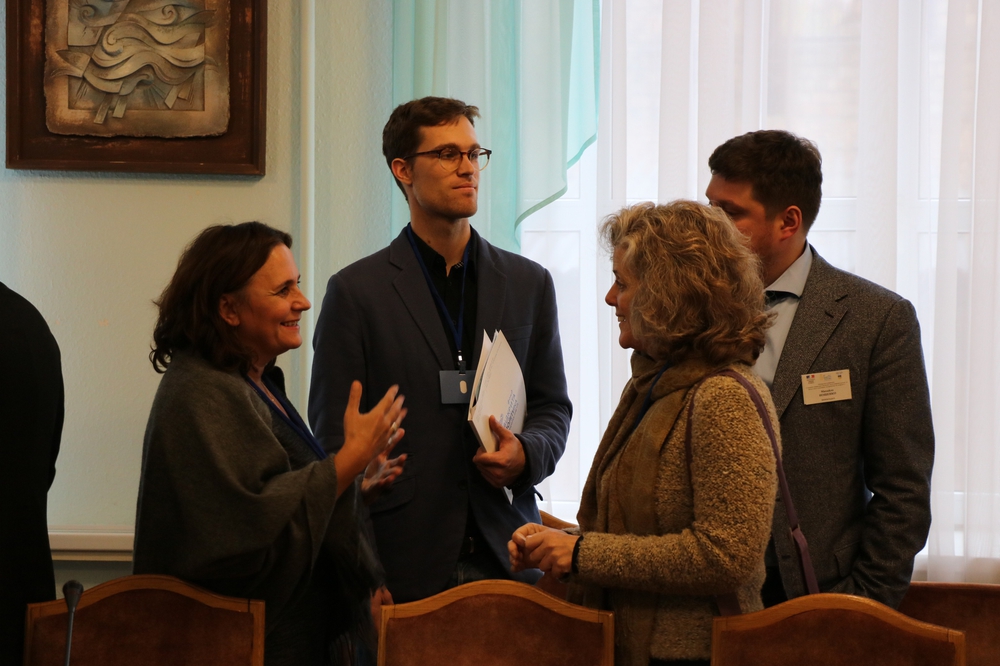News
Education is the main component of the Crimean and Donbas reintegration
Nov. 14, 2017, 10:14 p.m.On the International Day of Science in the name of peace and development the Open Policy Foundation together with the French Embassy in Ukraine and the Ministry of Education and Science of Ukraine, held the International Conference "Creating an International Platform for Increasing Access to Quality Education for the Children and Youth of Ukraine Affected by the Conflict".
The conference was attended by First Deputy Minister of Education and Science of Ukraine Volodymyr Kovtunets and Deputy Minister Pavlo Hobzey, Head of the UNICEF Representative in Ukraine Giovanna Barberis, representatives of the Embassies of France, Belgium, the Czech Republic and Lithuania, representatives of UNHCR international organizations in Ukraine, the Council of Europe, SavetheChildren and the others.
Giovanna Barberis, Head of the UNICEF Representative in Ukraine, emphasized the importance of ensuring access to quality education for children and youth affected by the conflict. Volodymyr Kovtunets, First Deputy Minister of Education and Science of Ukraine, underscored the importance of providing quality educational services. "There is monitoring of the quality of educational services provided by internally displaced higher educational institutions, improvement of the system of distance education in Ukraine and simplified system of admission to higher educational institutions and vocational schools through “Donbas-Ukraine” and “Crimea-Ukraine” Educational Centers in the plans of the Ministry of Education and Science of Ukraine”, - noted Volodymyr Kovtunets.
Read also on the Government portal.
The participants of the conference discussed about the mechanisms of improving the system of distance education, the work of the Educational Centers, informing, advocating and coordinating the actions of state agencies, non-governmental and international organizations.
Teachers, representatives of local educational departments noted the growing demand for distance education among children and young people from NGCA (Non-government controlled areas of Donbas) and temporarily occupied Crimea. This demand is not only for graduates but also among younger children. According to the statistics of departments of education in Donetsk and Luhansk regions, the number of children from NGCA and the territory of temporarily occupied Crimea who study on a distance learning form / on an external increased in Luhansk region from 487 students in 2015/2016 to 747 in 2016/2017; in Donetsk oblast from 1 651 students in 2015/2016 to 2 238 students in 2016/2017.
Educationalists from the city of Schastya, Lisichansk, Sievierodonetsk, Popasna, Svatovo, Kryzke, Kramatorsk, Slavyansk, Mariupol, Bakhmut, Pokrovsk, Genichesk, Kherson, together with the General Secondary Education Department of the MoES, and the departments of education in Donetsk, Luhansk, Kherson regions determined the main needs of distance education:
- the need to develop and approve the Provision of distance learning in high school (where to predict the load and billing of teachers who carry out distance learning, the maximum number of students in the class, etc.) and a teacher's load control mechanism (including who carries out the externship);
- the need to correct curricula for the needs of distance learning, to introduce in staffing schedule the positions of engineer-technician, Vice Principal, class teacher, to develop a mechanism of using the remnants of educational subventions for the needs of distance learning;
- lack of information on NGCA in Donetsk, Luhansk regions, occupied territories about distance education, and lack of schools and classes that provide distance learning;
- lack of cable high-speed internet;
- lack of a model of technical support for distance learning and costing documentation;
- lack of information about modern platforms;
- lack of available (without registration) and recommended MoES innovative video/audio/animated content of the programs of 1-9 classes, taking into account the training of specialists in the labor market 2020-2030 (STEM/STREAM education).
The participants of the conference emphasized the role of distance education in the reintegration of temporarily occupied territories and NGCA. Deputy Head of the Donetsk Regional State Administration Igor Stokoz noted that the wide development of distance education is a priority for the regional state administration and invited the international organizations to support broad-based programs for distance education in the regions affected by the conflict, including the projects for teachers’ training of distance learning technologies in accordance with international standards.
Read also at UNIAN:
Representatives from the Educational Centers, Embassies and International Organizations also expressed their vision of increasing access to quality education for children and young people, who live in NGCA and temporarily occupied territories. In their view, a simplified admission system needs to be improved, namely:
- It is necessary to change the terms of work of the Educational Centers, providing that the young person, that has turned to the center, will be able to pass the exams
- introduce preparatory courses for university entrants
- to develop and implement a state target program of the transfer for entrants from the Checkpoint of entrance and exit to the Educational Centers
- making changes to the Law of Ukraine "On Higher Education" regarding the placement of educational centers "Crimea-Ukraine" in the city of Kyiv, Lviv, Dnipro, Kharkiv
Svetlana Kretovych, Head of the sector of internally displaced higher educational institutions of the Ministry of Education and Science of Ukraine, reported on the results of the work of the Educational Centers in 2017 and emphasized the need to strengthen this direction.
Irina Zhdanova, Head of the Open Policy Foundation, proposed to create an international platform for expanding access to quality education for children and young people affected by the conflict in order to more quickly solving the needs of distance education, Educational Centers with the participation of representatives of embassies, international organizations, educators of Donetsk, Luhansk and Kherson regions, representatives of the Ministry of Education and Science and the Ministry of Temporarily Occupied Territories and IDPs. "The contribution of each side is extremely important, because only with joint efforts we can overcome all barriers and give young people from Crimea and Donbas a dreamy chance - the chance for a happy future," - said Irina Zhdanova.
The conference ended with the discussion by the educators from Luhansk, Donetsk and Kherson regions with Deputy Minister Pavlo Hobsey about the specific steps for improvement the legal and regulatory ensuring the development of distance education. The conference participants unanimously voted for the draft decision, which identified the main needs of distance education, Educational Centers and ways of providing them.
Read about the International Conference on the MoES website.
More –in the presentation of the Open Policy Foundation
The presentation Distance Learning. Achievements and Prospects (Vitaliy Antonenko, Donetsʹkyy Oblasnyy Instytut Pislyadyplomnoyi Pedahohichnoyi Osvity)
Photo - by link
The press release can be downloaded from the link
Thanks to all the partners of the Open Policy Foundation. Synergy in action!

